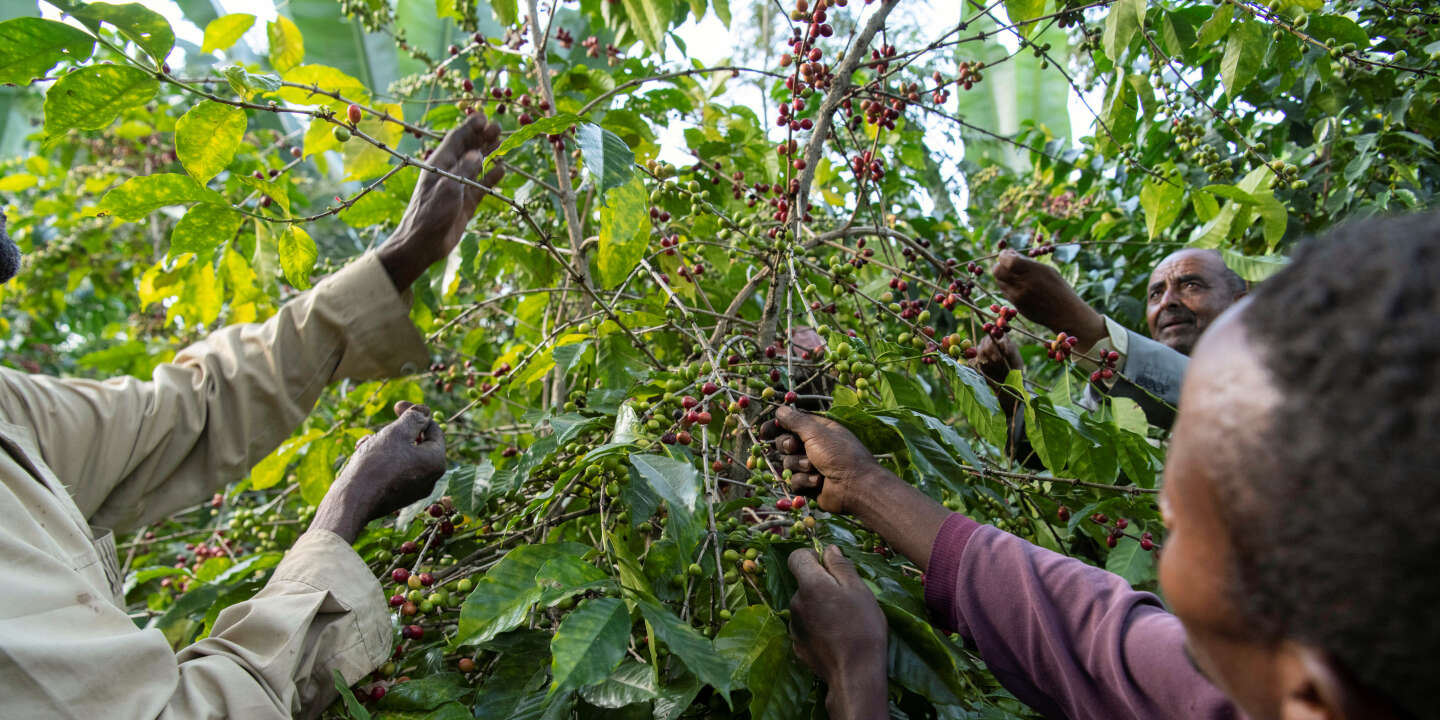Will Europeans have to do without Ethiopian coffee? The Horn of Africa country where, according to legend, coffee cherries were first discovered a thousand years ago and where their cultivation became widespread from the 16th century, could be severely harmed by the new European Union (EU) regulations aimed at combating deforestation worldwide that are due to come into force on January 1st, 2025.
The law, voted in Brussels in 2023, specifically targets soy and palm oil crops, identified as the two biggest threats to tropical forests. In a few months, however, it will also force coffee importers to prove that their supply chains do not contribute to deforestation using satellite data and geographical coordinates.
You can share an article by clicking on the share icons at the top right of it.
The total or partial reproduction of an article, without the prior written authorization of Le Monde, is strictly forbidden.
For more information, see our Terms and Conditions.
For all authorization requests, contact [email protected].
These regulations are of particular concern in Kaffa, the region of origin of the coffee that gives the drink its name, and throughout southern Ethiopia. Providing accurate geographical surveys is a challenge for these 5 million or so smallholders: Internet coverage is poor in the villages, land registries are non-existent, and land disputes are legion. According to several Ethiopian diplomats and exporters, complying with the new European standards could take up to five years.
Buyers already turning away
According to the United Nations Food and Agriculture Organization (FAO), around 10 million hectares of forest disappeared worldwide every year between 2015 and 2020. As for the European Parliament, it estimates that food consumption in Europe, particularly palm oil and soy, is responsible for 10% of global deforestation.
But coffee-growing’s contribution to the destruction of Ethiopia’s forests is actually very limited. “The vast majority of it grows in agroforestry systems. A few trees are felled, but it’s marginal,” assured a connoisseur based in Ethiopia for a decade who wished to remain anonymous. “And 90% of growers respect regulations,” he estimated, stressing that few chemical inputs are used in the plantations. Nevertheless, if they can’t provide this necessary information to importers, growers risk losing their main customers.



No Comment Found.